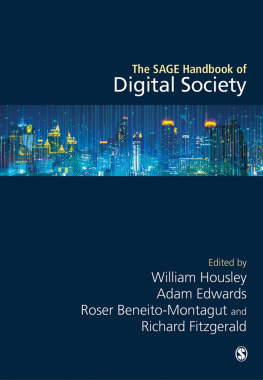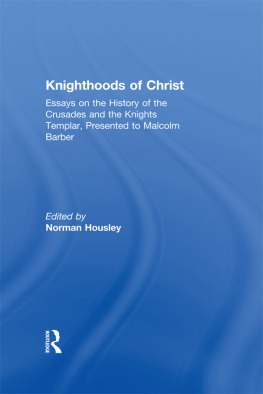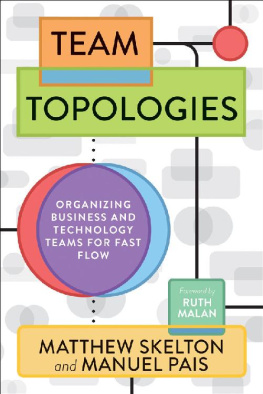INTERACTION IN MULTIDISCIPLINARY TEAMS
Cardiff Papers in Qualitative Research
About the Series
The Cardiff School of Social Sciences at Cardiff University is well known for the breadth and quality of its empirical research in various major areas of sociology and social policy. In particular, it enjoys an international reputation for research using qualitative methodology, including qualitative approaches to data collection and analysis.
This series publishes original sociological research that reflects the tradition of qualitative and ethnographic inquiry developed at Cardiff in recent years. The series includes monographs reporting on empirical research, collections of papers reporting on particular themes and other monographs or edited collections on methodological developments and issues.
Interaction in Multidisciplinary Teams
William Housley
School of Social Sciences Cardiff University, UK
First published 2003 by Ashgate Publishing
Reissued 2018 by Routledge
2 Park Square, Milton Park, Abingdon, Oxon OX14 4RN
711 Third Avenue, New York, NY 10017, USA
Routledge is an imprint of the Taylor & Francis Group, an informa business
Copyright William Housley 2003
All rights reserved. No part of this book may be reprinted or reproduced or utilised in any form or by any electronic, mechanical, or other means, now known or hereafter invented, including photocopying and recording, or in any information storage or retrieval system, without permission in writing from the publishers.
Notice:
Product or corporate names may be trademarks or registered trademarks, and are used only for identification and explanation without intent to infringe.
Publisher's Note
The publisher has gone to great lengths to ensure the quality of this reprint but points out that some imperfections in the original copies may be apparent.
Disclaimer
The publisher has made every effort to trace copyright holders and welcomes correspondence from those they have been unable to contact.
A Library of Congress record exists under LC control number: 2002025872
ISBN 13: 978-1-138-72592-8 (hbk)
ISBN 13: 978-1-315-19166-9 (ebk)
I would like to thank Jackie Swift for her help with the preparation of the manuscript and my colleagues at the School of Social Sciences, Cardiff University. I would also like to thank the ESRC for their support of the postgraduate research from which some of this work is derived.
For Michelle
Introduction
During the course of this book I will attempt to make some observations about professional practice within social work/care work teams. These observations are drawn from ethnographic, ethnomethodological and discourse analytic research into multidisciplinary social/care work team practice. The research investigated the interactional dynamics of a number of theoretically sampled multidisciplinary social/care work teams. The book attempts to report and bring together a number of observations generated during the course of this project. In order to do this I will first explore some of the ideas concerning multidisciplinarity and team work. This is followed by a discussion of my observations on multidisciplinary team practice. These observations will be relayed through the use of some illustrative examples of talk and interaction gathered from a case study of one of the multidisciplinary teams that the research examined. During the concluding chapter of this book I will reflect on some issues facing the development and promotion of multidisciplinarity within team based settings.
Multidisciplinarity
At the core of the conceptual apparatus of multidisciplinarity is the concept of knowledge and it's social organisation. The concept of multidisciplinarity is one that is grounded within a functionalist and systems based account of the social organisation of knowledge. The systems oriented organisation of knowledge in this way is seen as crucial to the efficiency and utility of knowledge systems in solving human problems. Furthermore, knowledge within Western societies has been subject to fragmentation (Kline 1995), multidisciplinarity, as a systems based concept, is an attempt to overcome fragmented thinking and develop holistic modes of enquiry, decision making and practice (Kline 1995). The systems approach towards knowledge has, through various histories of science, the philosophy of Kuhn (1962) and Popper (1902-1989), promoted a view of knowledge systems as functional entities subject to organisational and homeostatic tendencies. Furthermore, the heterogeneity of human knowledge, due to historical and social factors, had been seen to produce a fractured picture of the world within which holistic solutions to human problems had not been forthcoming. The notion of holistic truth is one that can be understood to emerge from the notion of universal truth. However, holistic truth is an attempt to draw the sting of relativism by accounting for the diversity of truths-in-the-world while universal truth is seen as an outmoded attempt to establish epistemological security that has resulted in problematic consequences for domains popularised by the new narratives of ecology, anti-racism, feminism, psychotherapy, info-technology and mysticism. Furthermore, the way in which knowledge bases and activities were organised can be seen to be one of the ways through which this failure has reproduced itself through social practices. Consequently, we may understand how attempts to ameliorate the organisation and practice of knowledge have provided for the emergence of the multidisciplinary approach that can be understood in terms of the theoretical context described. Kline (1995: 1) recognises this in her introduction to the book Conceptual Foundations for Multidisciplinary Thinking within which she states:
The intellectual system erected largely in the western world since the Reformation is enormously powerful and productive. Although we may have much yet to learn, the scientific approach to knowledge since the time of Galileo has provided the human race with a far better understanding of our world and of ourselves than was available to any previous society. This gain in understanding has arisen primarily from two sources. We have adopted what we loosely call 'scientific methods,' and we have broken the intellectual enterprise into larger and larger number of parts (disciplines and research programs). We have created working groups of scholars who study each of the parts in as 'scientific' a method they can bring to bear. However, there is a near total absence of overview of the intellectual terrain.
Despite the euro-centric assumptions of this statement, the questionable portrayal of progress and the categorisation of Western knowledge as indicative of a scientistic form of life, it displays an initial assumption through which the merits of multidisciplinarity has been substantiated. In terms of Kline's work, multidisciplinarity is a systems solution to the lack of a holistic approach to the present intellectual terrain. The systems analogy is one familiar to students of Parsonian fimctionalism (Parsons 1956). This analogy was adopted by structural functionalism from cybernetics, a sub-discipline of engineering, in order to illustrate the way in which social systems exhibited forms of complexity characterised by self regulating tendencies in the form of positive and negative feedback mechanisms and self sustaining replicating processes. The adoption of such an approach will, in terms of the humanist march of progress thesis adopted by Kline, improve our lot. The differences between disciplines are viewed as inhibitors to a fuller understanding of the world and our place in it. In short Kline seeks to indulge in some 'knowledge engineering' through which the separateness of disciplines is overcome. This, she argues, involves the construction of a multidisciplinary discourse through which disciplines can effectively engage with each other. The benefits of such a strategy, she argues, would ultimately be more effective solutions to human problems.












